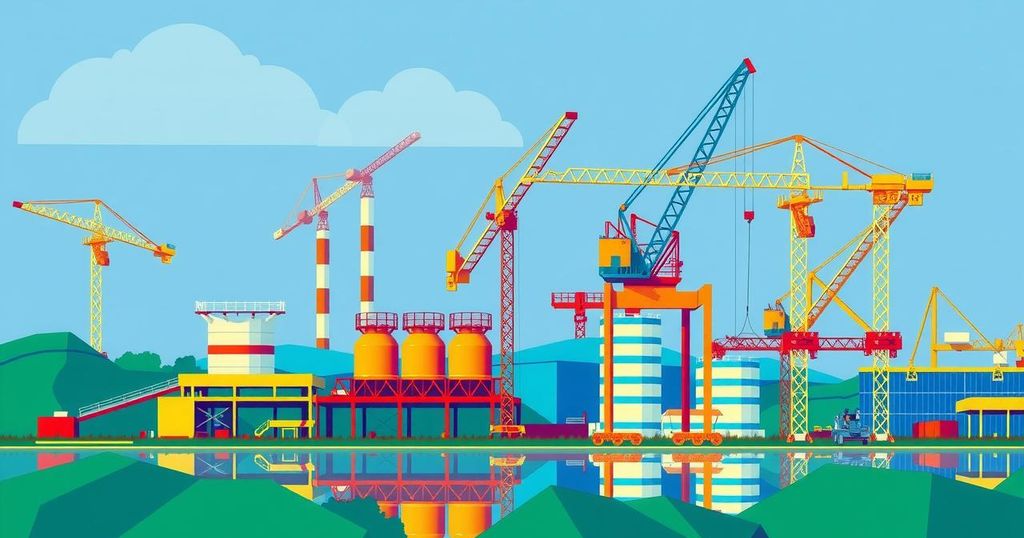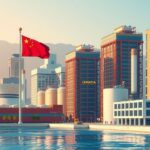Politics
ASIA, BANGLADESH, BHUTAN, BOAO, CHATTOGRAM, CHEN HUAIYU, CHINA, CHINA EXIMBANK, CHINA EXPORT - IMPORT BANK, CHINESE SPECIAL ECONOMIC ZONE, DASHERKANDI, DEVELOPMENT, EXIMBANK, FAR EASTERN ASIA, FOREIGN INVESTMENT, HAINAN, HUAIYU, INDIA, INFRASTRUCTURE DEVELOPMENT, INTERIM GOVERNMENT, MEXICO, MIDDLE EAST, MUHAMMAD YUNUS, NEPAL, NORTH AMERICA, PROF YUNUS, SUPPLY CHAIN, TRADE, TRADE DEFICIT, VIETNAM, WESTERN ASIA, YUNUS
Dante Raeburn
China Exim Bank’s Support for Manufacturing Relocation to Bangladesh
The China Export-Import Bank plans to aid the relocation of Chinese manufacturing to Bangladesh. This initiative seeks to establish Bangladesh as an export platform. Chief Adviser Professor Yunus emphasizes the country’s potential as a manufacturing hub, with plans for special economic zones and infrastructure development. The bank also aims to support socioeconomic growth through investments in various projects.
The Chairman of China Export-Import Bank, Chen Huaiyu, has announced the bank’s commitment to support the relocation of Chinese manufacturing plants to Bangladesh. This initiative aims to position Bangladesh as a strategic export platform to other nations. Historically, the China Exim Bank has focused on financing major infrastructure and energy projects within Bangladesh, but this marks their first significant interest in facilitating investments from Chinese private manufacturers in the region.
During a meeting at the Boao Forum for Asia Annual Conference 2025, Chief Adviser to Bangladesh, Professor Muhammad Yunus, emphasized the potential of Bangladesh’s strategic location and workforce. He described the country as a potential manufacturing hub for multinational companies, including those from China. He conveyed that the Bangladeshi government intends to offer attractive incentives to encourage Chinese manufacturers to establish operations in the country.
Professor Yunus remarked, “Bangladesh can be complementary to China as far as manufacturing is concerned,” while mentioning the expedited development of a Chinese Special Economic Zone in Chattogram. He also noted that new port developments are underway to potentially assist landlocked nations, including Nepal, Bhutan, and India’s northeastern states.
Chen Huaiyu stated that Bangladesh’s geographical position is advantageous for connecting with southeastern and far eastern Asia, as well as the Middle East and Western Asia. He expressed that as Chinese firms increasingly globalize, the bank is committed to supporting their investments and development efforts in Bangladesh’s manufacturing sector.
Further, the bank’s support will extend to infrastructure projects that aim to enhance socio-economic and sustainable development in Bangladesh. Huaiyu highlighted the success of Vietnam in attracting foreign manufacturers and indicated that Bangladesh should consider improving its business environment to attract similar investment.
In response to this, Professor Yunus remarked, “We will learn from Vietnam,” demonstrating Bangladesh’s willingness to adopt effective strategies. Additionally, Bangladeshi officials discussed the urgent need for Eximbank to expedite financing for projects like the Dasherkandi Sewage plant and requested a reduction in commitment fees which can inflate project costs.
The China Export-Import Bank’s support for relocating manufacturing to Bangladesh highlights a significant development in economic collaboration between China and Bangladesh. Professor Muhammad Yunus’ vision of transforming Bangladesh into a manufacturing hub aligns with the bank’s goals, potentially fostering enhanced business opportunities and infrastructure growth. As both nations work towards improving their investment environments, notable developments such as the establishment of logistical hubs and special economic zones may play pivotal roles in supporting these ambitions.
Original Source: www.bssnews.net








Post Comment